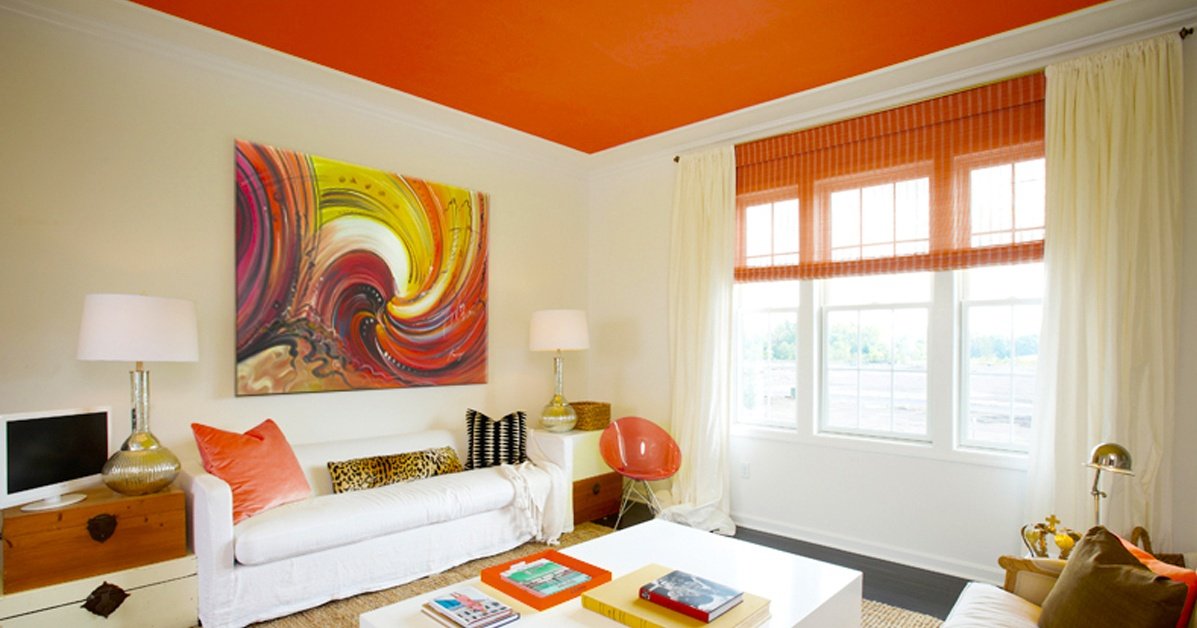20 Superb Ways to make a Small room feel Bigger
A tiny kitchen, low ceilings, cramped spaces — all these things can lead to the belief that you have limited opportunities to style your home exactly as you want it. But in fact, there are plenty of ways to spread the wings of your imagination in even the smallest rooms. You just need to know how to increase the space — or the perception of space — available to you.
To help give you some inspiration, here are 20 ways which can help to transform small spaces in your home.
Number 1: Choosing the right curtains

If you choose the same color for your curtains as you have on the walls, it will give a sense of volume to the room. Avoid selecting curtains which are thick, heavy and long.
Number 2: As much natural light as possible

Don’t use window ledges as bookshelves, and don’t put flowers there either. The window panes should always be completely clear and clean. Even the smallest room, if filled with the maximum amount of natural light, will feel more comfortable, airy and cozy all at the same time, rather than cramped.
Number 3: Furniture on legs

Whether it’s a sofa or a bed, a work desk, cupboard or chest of drawers, a great way to enhance actual as well as the perception of space in a room is to have everything on legs rather than pressed against the floor.
Number 4: Order in the house

Think carefully about how best to store things in your home, and pay attention to always clearing away shoes, clothes and other objects so that they’re left only in their designated place. Avoid having too many cushions and other decorations. A sense of chaos in the home, whilst for some may feel homely, only increases the perception of a lack of space to live and breathe.
Number 5: Neutral colors as your base colors

You can never go wrong in choosing light, warm pastel colors for your walls, ceiling, floor and some pieces of furniture. You’ll be surprised how much this enhances the feeling of space in a small room.
Number 6: Use ready-made textiles

Don’t be afraid to buy ready-made patterned pieces of furniture. These have the advantage of allowing you to buy sets for things like cushions, curtains and tablecloths. A single pattern used for different pieces of furniture enhances the sense of how much space there is in a room.
Number 7: Multi-use furniture

It’s always good to have a preference for multi-use furniture — a sofa which turns into a bed, for example, or a fold-away kitchen table; a chair on wheels which can be used in various rooms. The space in a small room should never be static if at all possible. The more you can shift things into different rooms or change the position of furniture kept in one room, the more space you will have in it at any one time.
Number 8: Use of mirrors

Mirrors placed close to windows are instrumental in creating a greater sense of space. Mirror-doors for a wardrobe or the door to a room are a great option here.
Number 9: A balanced choice of furniture

Having only a small number of full-sized pieces of furniture in a room is a great way to economise on space. But if this leads you to choose much smaller pieces for the remaining furniture, the contrast between pieces will give the room a disjointed look. Try instead to choose pieces of furniture which are all the same size, but have as few as possible in each room.
Number 10: Use the height of a room to maximum effect

A great way to save space is to have a bookshelf (or any other kind of shelf where you store various objects) which stretches from the floor to the ceiling. They may seem overly large at first, but you will notice the difference in terms of the space saved and your perception of the room’s size.
Number 11: Enlarge the windows

Hang the curtains high on the wall, and have them extend to the floor. Provided they aren’t too dark or thick and allow light through, this will create a feeling of greater space by making the window opening seem to cover the entire wall.
Number 12: Neat, tidy shelves

Leaving some shelf spaces empty can help to create a feeling of airiness in a room. Place large, heavy books closer to the floor and photographs at eye level.
Number 13: Don’t place all your furniture along the walls

Don’t be afraid to place a table or sofa diagonally in a room, or right in the middle of it. Create a comfortable, functional living space rather than a dance floor in the centre of each room. Placing everything along the walls has the effect of increasing your awareness of how little space you have, rather than increasing it.
Number 14: An emphasis on the walls

Painting one or several walls in a richer, heavier colour to the others also helps create a sense of space which is lacking from smaller rooms. You can also use decorative wallpaper here to achieve the same effect.
Number 15: A bright ceiling

According to one, erroneous piece of advice, the ceiling in a small room should always be painted white. This isn’t true. Try painting it a bright color, and you’ll be impressed how much more airy the room feels.
Number 16: A striped floor

This option certainly isn’t to everyone’s taste, but it can really help to create a sense of space, making a room feel either much longer or much wider depending on the direction of the stripes.
Number 17: Use transparent furniture

A glass table or transparent chairs made from high-quality material are a great solution for small rooms. They create an impression of lightness and the feeling that the room is not so jammed up with things.
Number 18: A large number of light sources

The lighting in a room should be varied. Free-standing lamps, table lamps, lamp brackets on the wall — all of these work well in small rooms. If the light is focused upwards, this will illuminate the ceiling better and enhance the sense of space.
Number 19: Artwork as decor

There’s a place for artwork even in small rooms. In fact, a large painting along one wall can make the space seem bigger.
Number 20: High doors

High doors exaggerate the height of the ceiling in your mind, and also look stylish and elegant.














